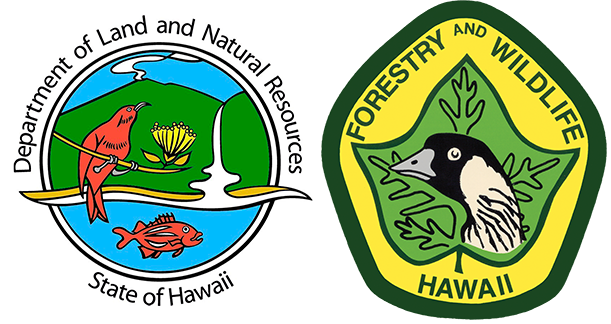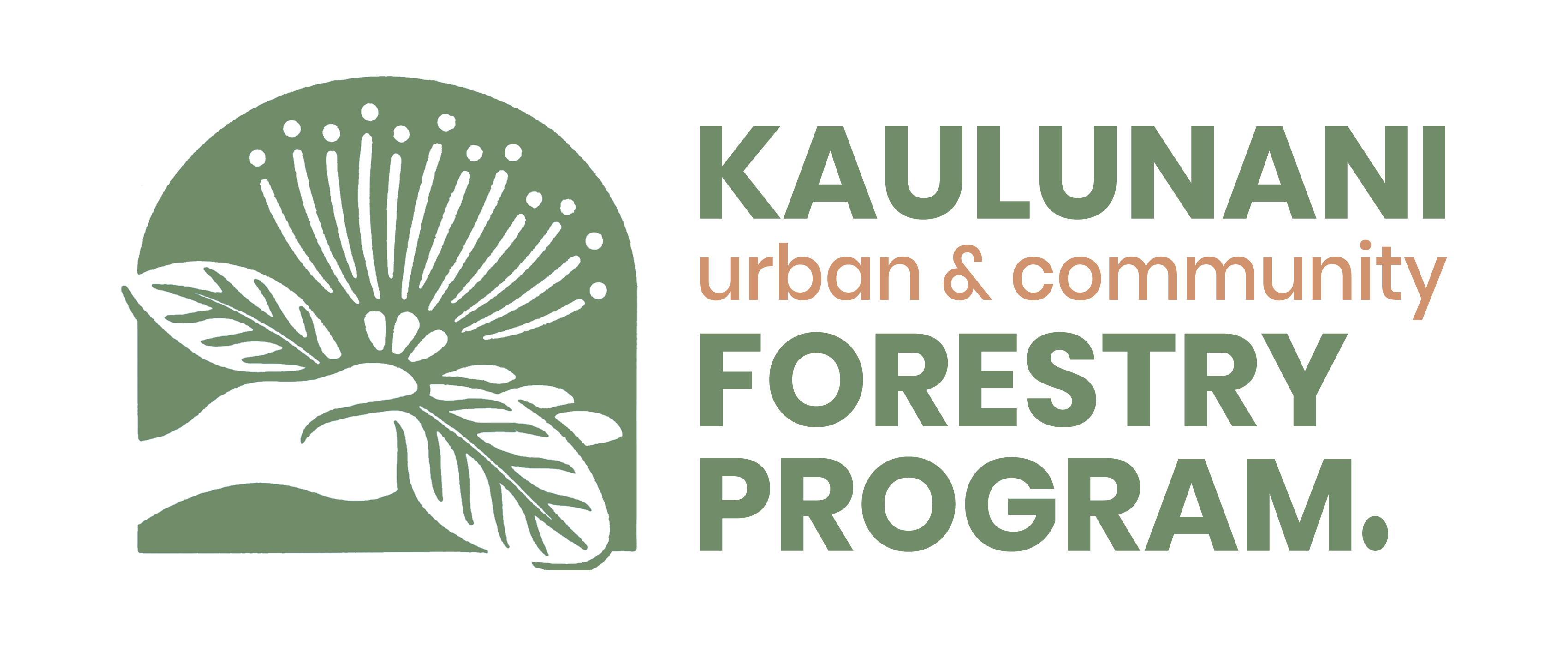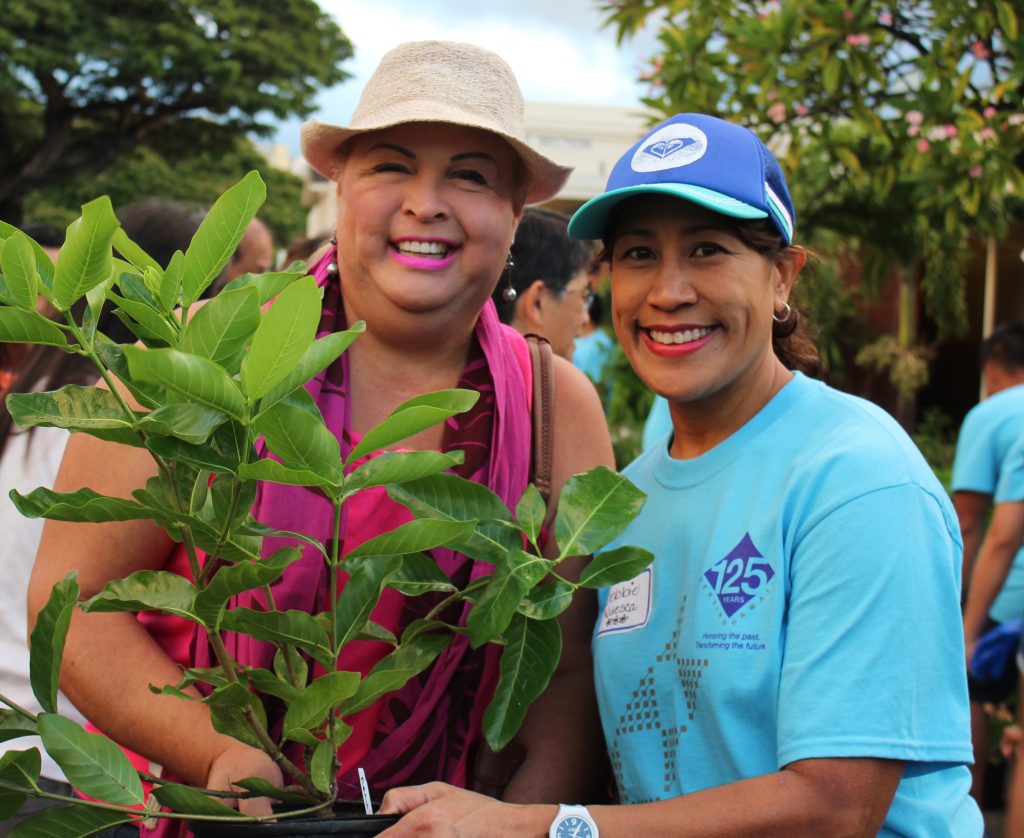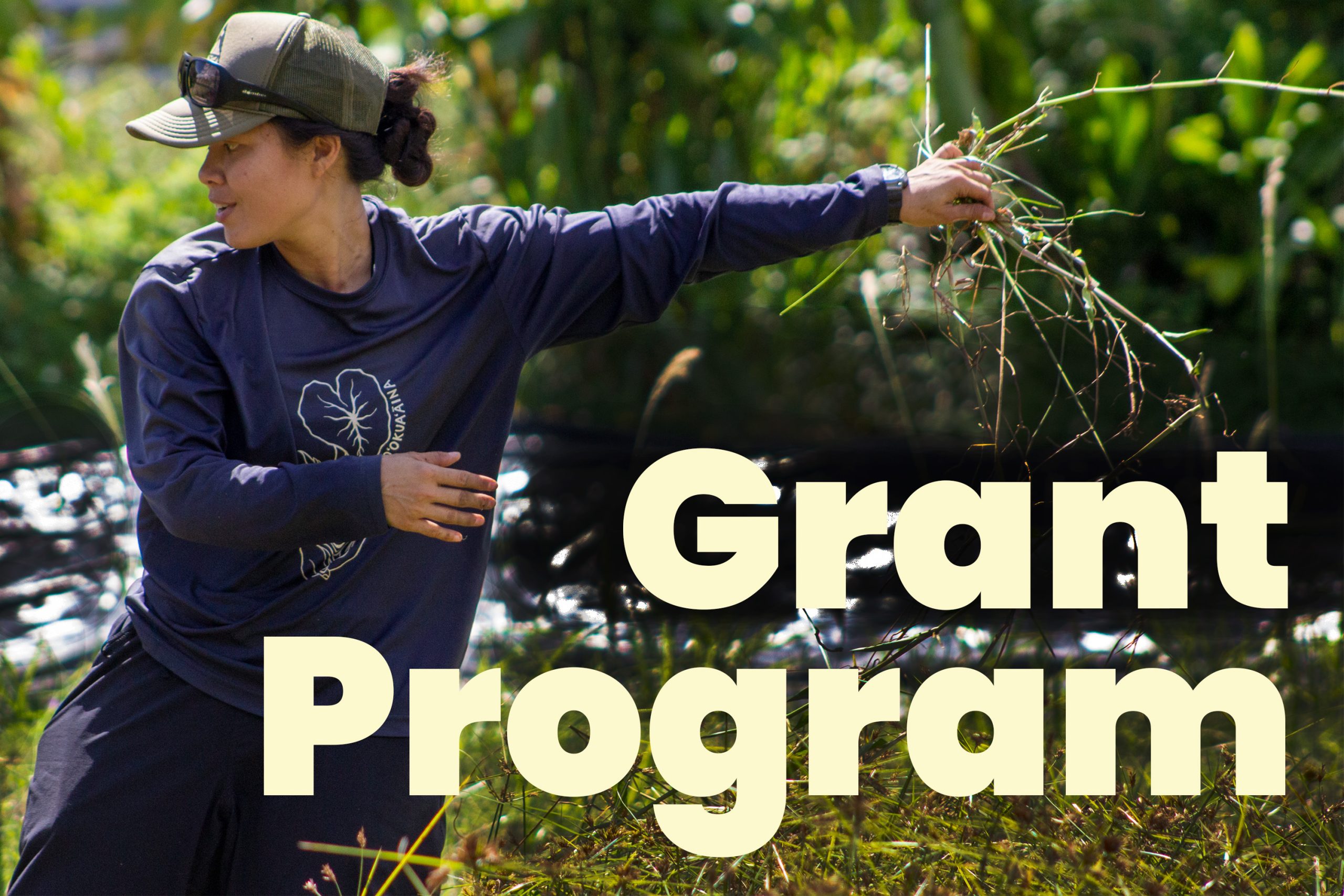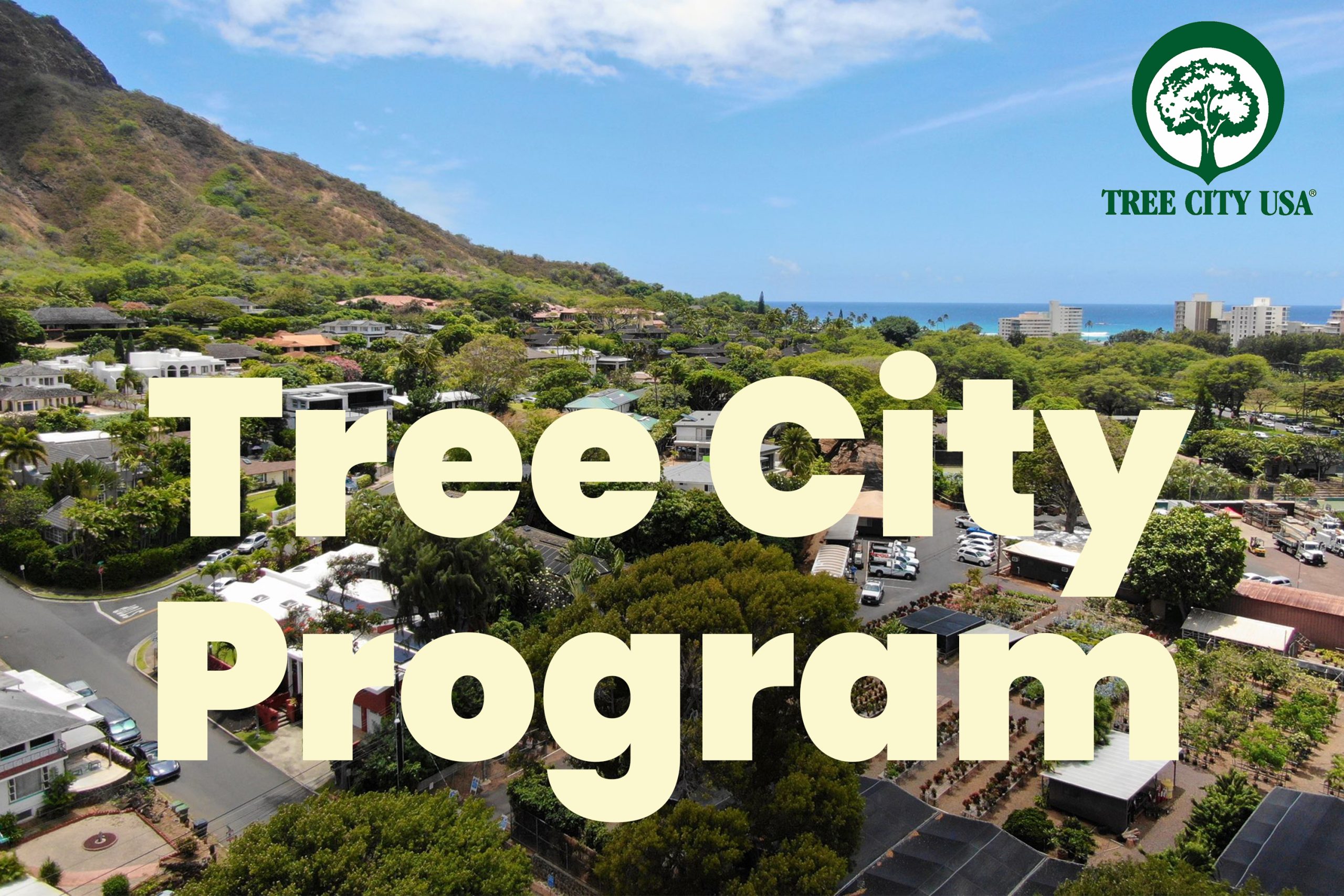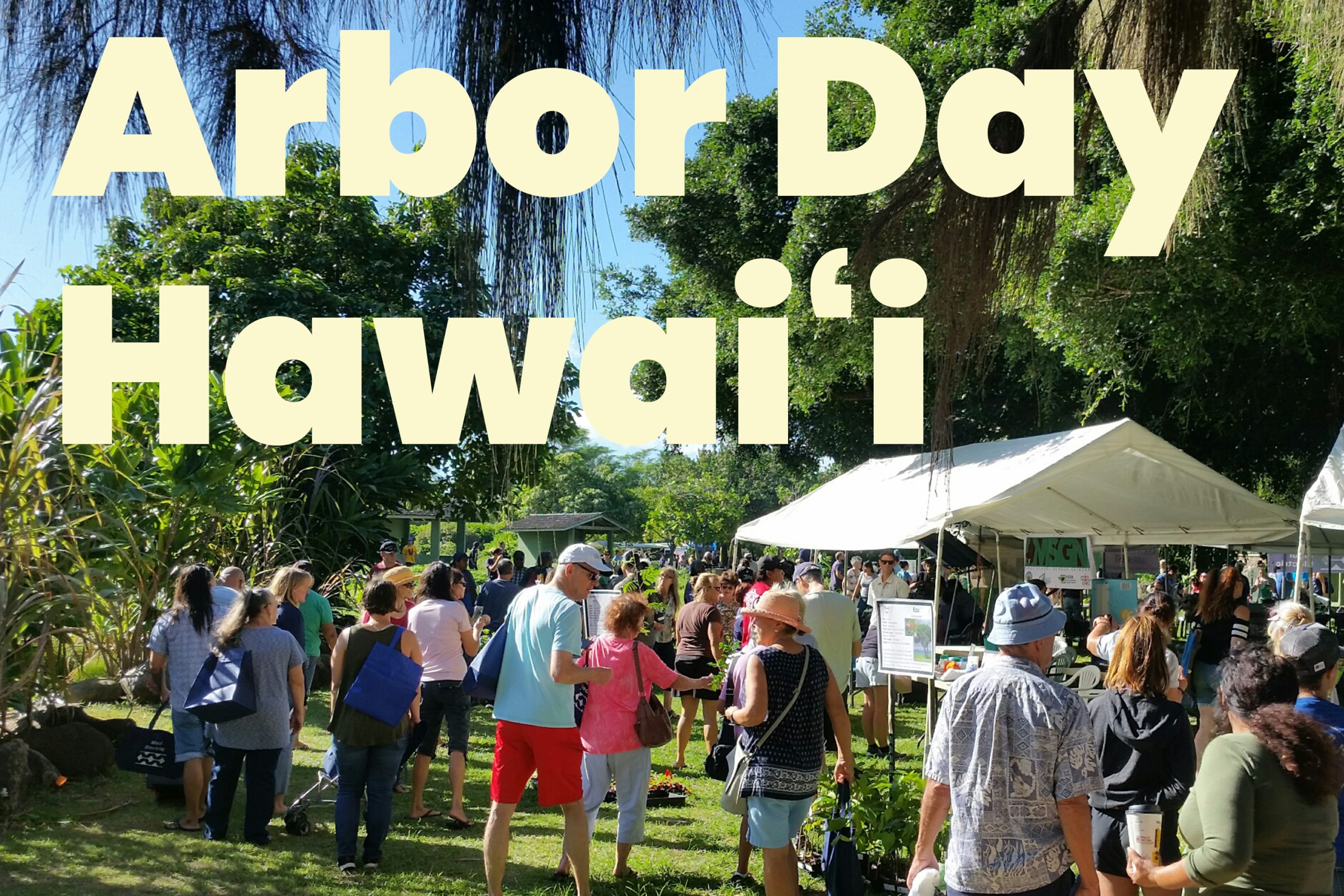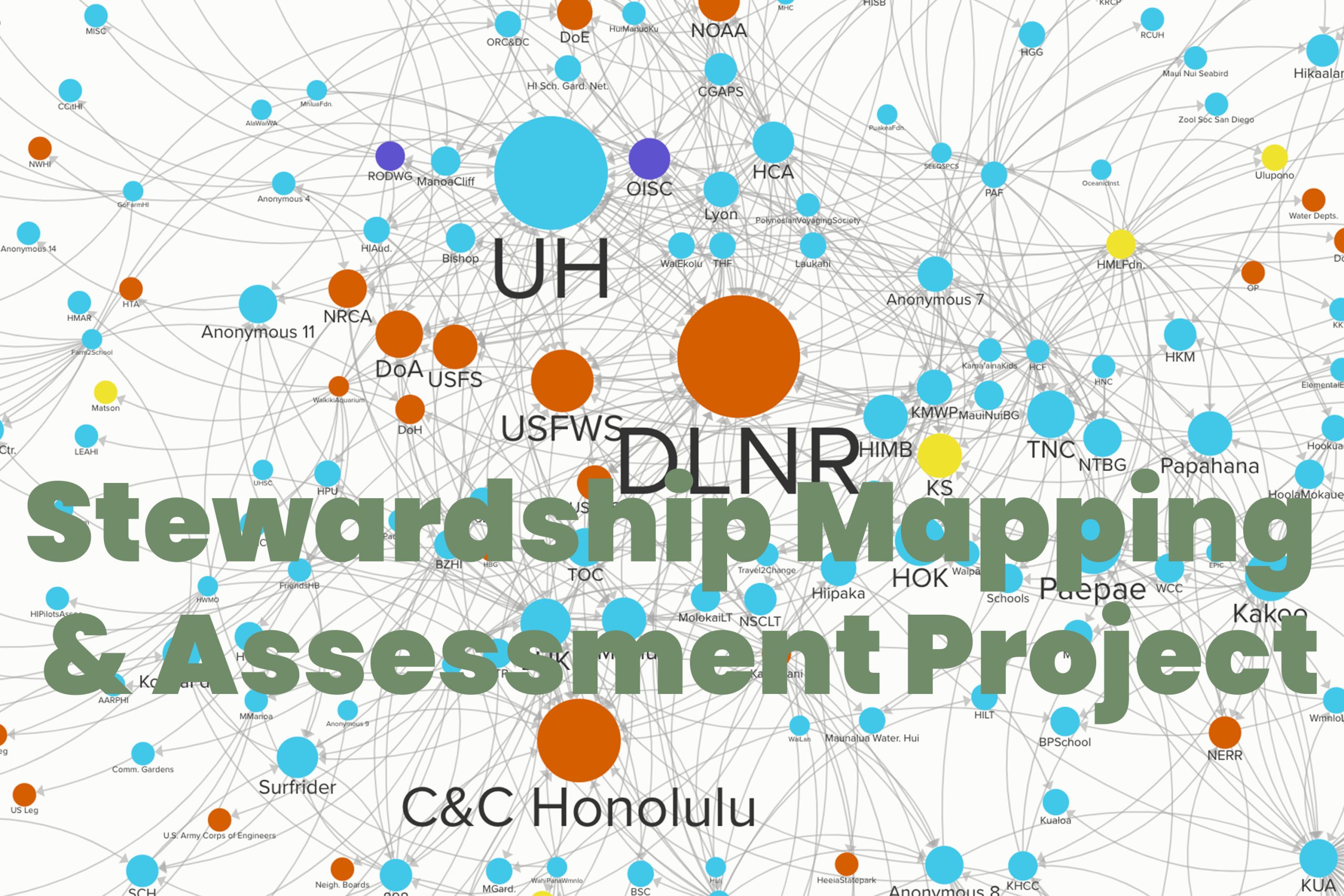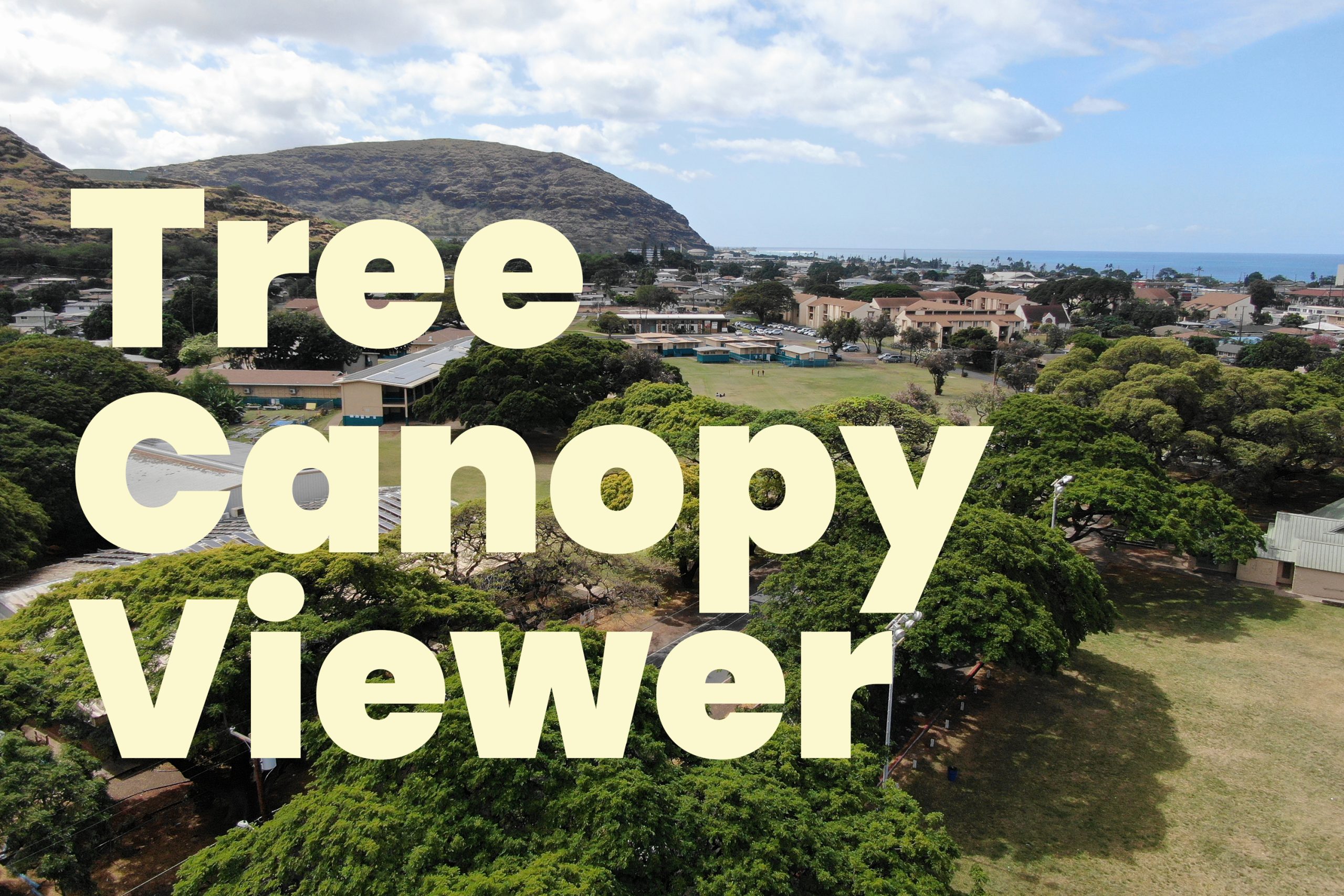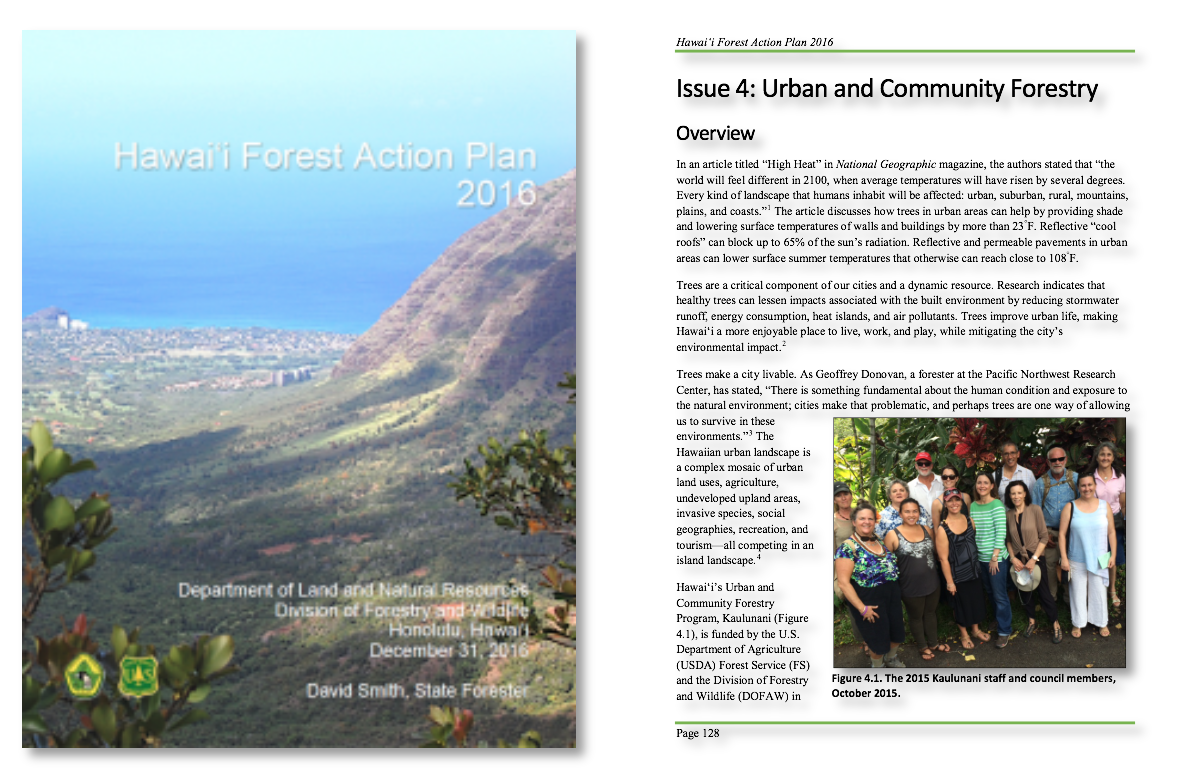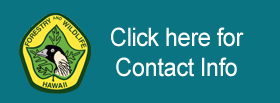Kaulunani Urban & Community Forestry Program
Community Grants & Arbor Day Grants Open Feb. 2!
Kaulunani is proud to be the State of Hawaii’s Urban and Community Forestry Program housed within the Department of Land and Natural Resources’ (DLNR) Division of Forestry and Wildlife.
Kaulunani focuses on improving the health and viability of trees in Hawaiʻi’s communities through the implementation of educational programs; supporting Tree City USA communities across the state; providing technical training; administering financial support in the form of cost-share grants via Kaulunani’s Grant Program; supporting Arbor Day Hawaiʻi; and maintaining public/private partnerships. This program is supported in part by Region 5 of the USDA Forest Service, State and Private Forestry.
Mission
The mission of Kaulunani is to support all of Hawaii’s communities with a focus on equity to cultivate well-being and resilience through restorative and environmental justice, planting, caring for, and growing relationships with the trees and forests where we live, work, learn and play.
Purpose
The purpose of Kaulunani is to strengthen the capacity of communities to plan for, establish, manage and protect trees, forests, and green spaces across Hawai‘i. We focus our efforts and resources on underserved and low-income communities as well as Native Hawaiians — the Indigenous people of Hawai‘i. Through these actions and through supporting relationships among people and trees, this program provides social, economic, ecological, and health benefits to Hawaii’s communities. It supports collaboration across governmental, private, non-profit, and community-based organizations to improve the biocultural well-being of communities and the ecosystems they inhabit.
Program Goals
- Improve the understanding of the benefits of trees in urban areas and communities.
- Increase tree canopy cover.
- Reduce carbon emissions, conserve energy, improve air quality and increase other environmental benefits.
- Support community tree planting and tree demonstration projects.
- Support Arbor Day activities.
- Enhance the technical skills and knowledge of the urban forest industry.
- Expand research and educational efforts.
Equity & Justice Statement
In acknowledgement of the need for and the power of centering the Kaulunani program on equity and justice, the Kaulunani Advisory Council and Staff created this statement as a transparent expression of our intent to move beyond a narrow set of outcomes (e.g., tree planting, canopy expansion) to a much broader set of well-being and sustainability outcomes (e.g., equity, connectivity, food security, regenerative forestry).
In recognition that:
- Justice for people and the rights of people are inter-related to justice for nature and the rights of nature, including in spaces where we live, work, learn, and play.
- Enduring legacies of historical injustice persist due to the illegal overthrow of the Kingdom of Hawai‘i in 1893 and due to 1,800,000 acres of ceded land being taken without consent or compensation to the Native Hawaiian people of Hawai‘i or their sovereign government (Public Law 103-150).
- Indigenous and local knowledge offer solutions to sustainability and equity challenges across our urban and rural communities.
- Native and Polynesian introduced trees and the practices associated with them are essential for maintaining biocultural continuity and well-being in urban and community spaces of Hawai‘i.
- Diversity, both biological and cultural, is a strength that makes us more resilient.
- Fruit bearing trees, including coconuts, are essential for food sovereignty and equitable access to healthy foods in urban and community spaces.
- A healthy urban tree canopy is associated with climate change resilience, reduced heat island effect, reduced erosion and stormwater runoff, cleaner air and water, lower crime rates, calmer traffic, improved mental and emotional health, lower rates of asthma and cardiovascular disease, and improved educational outcomes.
- Disparities in urban tree canopy cover can indicate and even perpetuate social and health inequalities.
Kaulunani recognizes that our mission is best fulfilled through engaging people of diverse backgrounds, beliefs, experiences and cultures with a focus on our underserved and low-income communities as well as Native Hawaiians — the Indigenous people of Hawai‘i. To that end, we identify and lift up equity, diversity, and justice as foundational to our program and we are committed to implementing these values through our grant program, outreach, and the composition of our Advisory Council and partnerships. We endeavor to address the ongoing impacts of historical injustice through a holistic approach that focuses on trees/forests/food and intertwines green infrastructure design, restorative and environmental justice, and generational community well-being.
Resources:
https://resilientoahu.org/equity
https://hano-hawaii.org/decent-work/
https://canopy.org/about-us/dei/
Projects
Kaulunani has grown from a program primarily focused on tree planting projects and education, to one that engages in challenging topics that blend partners, people, and projects. Project elements such as environmental change, advanced planning, leadership, volunteer commitment, community involvement, interagency partnerships, appropriate plant selection, proper horticultural procedures and maintenance became leading indicators of successful urban forestry projects.
Kaulunani helps communities improve the quality of life within the built environment through actively participating in urban forestry projects and gaining a better understanding of the role trees play in all the places we live, work, learn, and play.
Further Links
Stewardship Mapping and Assessment Project (STEW-MAP)
- Hawaiʻi Interactive Map
- STEW-MAP Hawaiʻi Island Homepage and Dashboard
- STEW-MAP Oʻahu Homepage and Dashboard
Tree Canopy Viewer
Significance of our name
Kaulunani, can be literally translated as “the beautiful growth” and its multiple meanings carry guidance and inspiration for our program.
“Ulu” carries the meanings “to grow, increase, spread, propagate, sprout,” just as we aspire to grow our forests and our communities. Ulu also means “grove, assemblage” which speaks to our vision of a forested community that is connected to and in relationship with its component parts.
Beyond the tangible green growth, ulu is “inspired by spirit,” “to enter in and inspire,” and “excited,” which speaks to the profound motivations we bring to the work and, similarly, the energy this work brings into our own lives. (Translations of ulu from Pukui and Elbert 2003[1]).
Guiding Document
The Kaulunani Program is guided by the State’s Forest Action Plan. The Kaulunani Council worked as part of the Hawai‘i Forestry team to analyze forest-related conditions, trends, threats, and opportunities within the State, to assure that federal, state, private and community resources focus on important issues.
Issue Four: Urban and Community Forestry section from 2016 can be found here.
This work is being funded entirely or in part by the Kaulunani Urban and Community Forestry Program of the DLNR Division of Forestry and Wildlife; and State and Private Forestry, branch of the U.S.D.A. Forest Service, Region 5.
